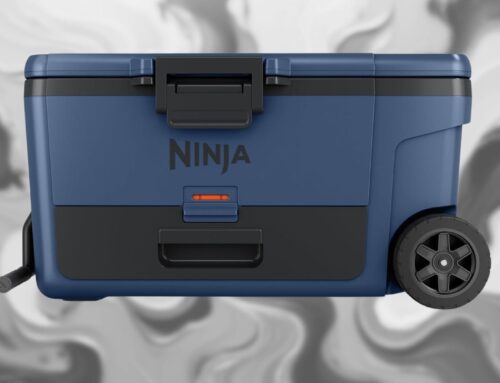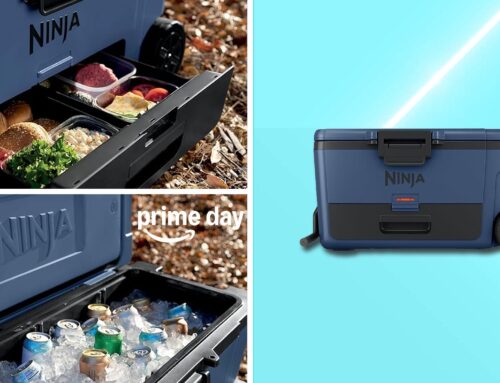The Kings Of CBD Are Now Cooking Up Plans To Make Billion-Dollar Meds From Cannabis And Mu
June 30, 2025
The Stanley Brothers created Charlotte’s Web, the CBD supplement that’s worked wonders on seizures. Now they are developing pharmaceuticals derived from cannabis and psilocybin with hopes of treating autism, PTSD and depression.
Inside a 13,500-square-foot warehouse in Littleton, Colorado, Joel Stanley, one of the seven Stanley brothers known for popularizing CBD with their groundbreaking company Charlotte’s Web a decade ago, walks through a series of five isolated cultivation rooms where thousands of psychedelic mushrooms are being grown. Giant fruiting bodies of the potent fungi, which contain the mind-bending compound of psilocybin and other tryptamines, stand tall at his newest venture, the drug development company Ajna BioSciences.
Down the hall, a chemist in a white lab coat pours mushroom extract into silver cylinders to turn the tryptamine-rich liquid into a fine, eggshell-colored powder. While these magic mushrooms are known toinduce an intense psychedelic experience, Ajna, which was founded in April 2021, is not growing them to expand people’s consciousness, but to develop what Stanley hopes to become a new billion-dollar, U.S. Food and Drug Administration-approved medicine for depression.
“We’re taking a pharmaceutical approach to nature,” says Stanley, Ajna’s 45-year-old CEO and founder. “Our entire process is totally organic, which means we could produce the first USDA-certified organic pharmaceutical.”
In another room, a chemist sitting next to a high-resolution mass spectrometer is working on identifying every molecule in Ajna’s frontrunner drug, codenamed AJA001— a botanical tincture of CBD and THC extracted from a patented strain of Charlotte’s Web hemp plants.
“We are mapping out the chemical structure to see every atom—I’m digging into the weeds,” she says, oblivious to her pun.
Ajna has raised a total of $11 million, about $4.5 million from the Stanley family, $5.5 million from Joel and other executives at his company, and the rest from early Charlotte’s Web investors, to develop a suite of botanical drugs from hemp, marijuana and psilocybin mushrooms. But Charlotte’s Web, which owns the intellectual property for AJA001, has licensed it to Joel’s brother Jared’s new company, DeFloria, to help Ajna get through the FDA approval process by raising $15 million from British American Tobacco. (DeFloria is a joint venture between Ajna, Charlotte’s Web and BAT.)
AJA001 is targeting what is arguably the central condition of the Make America Healthy Again era—autism, which now affects one in every 31 children and one in 45 adults. Jared Stanley, the 38-year-old CEO of DeFloria, says the autism drug is following the FDA’s botanical drug pathway, meaning it is wholly derived from the plant and not a synthetic single molecule drug, like most pharmaceuticals on the market.
Botanical drugs can be more difficult than single molecule drugs due to the sheer number of active compounds in plants. AJA001, for instance, contains 6,000 compounds. Currently, there are only four FDA-approved botanical drugs, including sinecatechins, a topical cream for genital warts made from green tea leaves and marketed as Veregen.
AJA001, which successfully passed Phase I of FDA clinical trials last summer, has been proven safe to use. In February, it was cleared to enter Phase II to study the drug’s efficacy and side effects—this is typically the second most difficult phase where only 33% of drugs make it through. If AJA001 makes it to Phase III, the most challenging part of the process with a bigger patient population to monitor adverse reactions and efficacy, it will be up against a 25%-30% success rate.
Success for the Stanley Brothers’ newest venture is obviously not guaranteed: Getting a new drug through clinical trials and approved by the FDA is a herculean task that requires very deep pockets. On average, it costs $880 million to get a completely new medication through the FDA approval process. That number can easily surpass $1 billion if there are any issues with trials or data. The whole process can take a decade, and companies are battling a 91% failure rate. DeFloria has already spent $16 million to get AJA001 this far in the pipeline.
While 39 states have legalized medical marijuana and 25 have legalized recreational sales, pharmaceutical cannabis is an entirely different industry. In 1985, the FDA approved Marinol, a synthetic form of THC called dronabinol, for cancer and AIDS patients, its sales are an estimated around at around $250 million annually. The current cannabis-derived blockbuster is Epidiolex, a CBD tincture that has been FDA approved for children and adults with Lennox-Gastaut syndrome, Dravet syndrome and other rare epilepsy seizure disorders. With a small patient population hovering around 100,000 people globally, Epidiolex has managed to reach $972 million in sales last year and is tracking to surpass $1 billion in sales this year, analysts say. The Stanleys believe their autismdrug, if approved, could achieve far greater success.
AJA001 is targeting irritability in people with autism spectrum disorder (ASD), which affects about 4 million people in the United States. There are currently two pharmaceutical drugs that are used to treat irritability in ASD, Abilify and Risperdal, both antipsychotic medications that are used to regulate mood and behavior by manipulating dopamine and serotonin levels in the brain, but they have a host of severe side effects. Still, with a patient population in the millions, Joel Stanley believes AJA001 can surpass a “conservative” $2.4 billion in sales within five years of being on the market.
The Stanleys have patents for the Charlotte’s Web strain of hemp that AJA001 is made with, and Ajna has filed patents, which are pending, for its pharmaceutical drug. Botanicals have similar patent protections as other drugs, but Jared Stanley says botanicals are harder to produce and can guard against competition from generics due to the number of active compounds.
“One of the unique intellectual property paradigms is that there’s a natural moat against generics,” he says. Joel adds: “It’s virtually impossible to genericize a full spectrum multi compound drug.”
Rachel Elfman, an analyst at Morningstar who covers Dublin-based Jazz Pharmaceuticals, which bought Epidiolex for $7.2 billion in 2021, says DeFloria is not on an easy path.
“For any company, it’s a very difficult feat to establish a drug, do preclinical trial assessment, and then get approval,” says Elfman. “It’s arduous and lengthy for any company, with a high risk of failure.”
Joel, whose primary job is raising money for Ajna, which is Sanskrit for “perception” and refers to the third eye chakra, is not worried about being able to secure enough capital to get through more clinical trials. He is just starting to raise an additional funding round, which he says will get AJA001 through Phase II of the FDA process. The average cost for Phase II is just over $20 million.
“We [already] raised $28 million to get to where we are in four years during the worst time to raise money in my lifetime, which goes to show the merits of the project and shows this is worth doing,” he says. “I’m not worried about raising it, but what gives me heartburn is the amount of time to get there.”
While Epidiolex has been approved, an encouraging sign that the FDA is willing to consider cannabis-based pharmaceuticals, AJA001 contains THC, the psychoactive component of cannabis, which is still illegal at the federal level and makes the process much more complicated.
There is, of course, a lot of hype when it comes to the medicinal benefits of marijuana and psychedelic drugs like psilocybin, but no company has successfully brought a nonsynthetic form of THC to the U.S. market as a medicine. And there are plenty of failures.
Jazz Pharmaceuticals, for instance, owns a mouth spray that contains THC and CBD, a drug called nabiximols that is marketed as Sativex. It was first approved to ease muscle spasticity for people with multiple sclerosis in Canada in 2005 and has since been approved in more than 20 other countries globally. But nabiximols has not been able to clear the FDA approval process. In 2022, nabiximols failed its Phase III clinical trial after spending nearly $20 million since 2017.
The process is even more difficult when it comes to psychedelic drugs. Last year, MDMA, or the active ingredient in “ecstasy,” which is being developed by Lykos as a combination drug with therapy to treat Post-Traumatic Stress Disorder, failed to get approved by the FDA after being designated “breakthrough therapy” status nearly a decade ago, an accelerated development pathway the regulator gives to promising potential drugs, and raising $100 million. (Lykos is currently raising money to re-do its Phase III trial.)
But the Stanleys are not deterred by these failures. One of their secret weapons, they believe, is Ajna’s chief medical advisor, Dr. Orrin Devinsky, director at NYU Langone’s epilepsy center who was the principal investigator for Epidiolex. “He is the only person to have a cannabis drug FDA approved and he is now leading this project,” says Jared.
The Stanley brothers are not looking to do it all themselves. Their strategy is similar to GW Pharma, the U.K.-based drug developer that created Epidiolex and Sativex before selling to Jazz. “DeFloria is looking for its commercialization partner,” says Jared. “That would be the quickest to exit.”
The Stanley family knows about successful exits, as well as hardship. The seven brothers and four sisters grew up modestly in Oklahoma and later Colorado. Poor and religious, they started working early—throwing newspapers, cutting lawns. Eventually, Joel went to work on oil rigs in the Barnett Shale in Texas. “Nothing pays like oil,” he says. Josh, another brother, started a dispensary in Denver and by 2009 most of the brothers joined and started pursuing a business in Colorado’s burgeoning medical marijuana industry, which was still prone to government raids. They started cultivating marijuana with a 16-light set up in a basement outside of Fort Collins. They grew weed, made highly potent oils and tinctures and sold them to medical dispensaries.
Starting in 2010, they began pivoting from high THC marijuana strains to ones high in CBD in an effort to explore the medicinal benefits of the cannabinoid. Their mother’s friend gave them some “feral hemp” seeds that grew wild on his farm in Kansas, and they crossed it with another strain. They named the strain Signa, after their grandmother. But this plant was not for potheads. This strain was high in CBD, which does not get people high, and eventually they renamed it after their first customer—a five-year-old girl named Charlotte Figi from Colorado Springs, who had debilitating seizures from Dravet Syndrome.
The result was nothing short of a miracle. Charlotte, who was unable to walk and talk, started taking the Stanley Brothers’ tincture and her seizures went from 50 a day to one a month. In 2013, Dr. Sanjay Gupta, a neurosurgeon at Emory University and CNN’s chief medical correspondent, met Charlotte, and he put CBD and Charlotte’s Web on the map with his CNN documentary “Weed.” Soon, the Stanleys had a waiting list of 15,000 customers. They obtained an industrial hemp license, leased some farmland and planted 36,000 hemp plants and started manufacturing their own products. (Charlotte died in 2020, most likely from complications due to Covid-19.)
By 2018, right before the federal government legalized hemp via the Farm Bill, the Stanley brothers had raised $150 million and went public in Canada, hitting a $1 billion market capitalization and $95 million in revenue within a year. But these days, with a highly competitive market in the dietary supplement world, not to mention the $32 billion (annual sales) state-regulated marijuana economy, the company’s revenue has dropped to $50 million, and the stock price is now below 10 cents with a measly $15 million market capitalization.By 2021, the brothers began exploring other ventures—Joel founded Ajna and two years later Jared launched DeFloria to pursue FDA approval of their hemp drug AJA001.
Back inside Ajna’s headquarters, Joel stands near the company’s 15-foot safe, which is cased in eight inches of reinforced concrete and where all of its psilocybin and THC products are kept. During some downtime at the lab, one of the company’s chemists synthesized 5-meo-DMT, a powerful psychedelic found in the Sonoran Desert toad known by its nickname the “God Molecule.”
“One day, we could have that be a revenue stream if we like,” Joel says, explaining his company has a license from the Drug Enforcement Administration to research and manufacture banned substances.
Despite the risks and the probability of failure, the Stanley brothers say they will be successful in bringing the first botanical form of cannabis through the FDA approval process.
“Pharmaceutical cannabis is the biggest future for cannabis,” says Joel. “This will be revolutionary.”
More from Forbes
Search
RECENT PRESS RELEASES
Related Post



